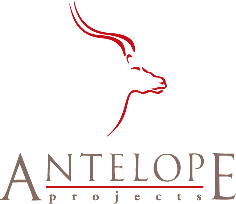
 |
business relationship managementveryard projects > business relationship management |
| we offer | scope | material | links | ||||||||
| consultancy
management briefings and technical education independent advice on tools and methods |
|
[scope] [principles]
[elements] [dynamics] [tradition]
[alliances]
business concept implementation
|
 |
Scope of Business Relationship Managementveryard projects > business relationship management > scope |
| Strategic Partnership & Consortium | Partner Identification
Bidding & Negotiation Partnership Maintenance |
| Customer Relationship Management | Call Centres
Mass Customization Data Warehousing |
| Supply Chain Management | Contingency Planning
Supply Chain Analysis Supplier Verification |
| Mergers and Acquisitions | Acquisition Policy
Acquisition Targeting Merger Facilitation |
| Industry Regulation | Industry Micro-Analysis
Designing & Implementing Regulatory Instruments |
| Joined-up Government | Cross-cutting, partnerships |
 |
Principles of Business Relationship Managementveryard projects > business relationship management > principles |
| Many business organizations and systems are trying to be more responsive to the demands of customers, suppliers, regulators and other partners. | |
| Business strategy is increasingly focused on building and maintaining alliances and networks. | |
| Good business relationships are required to support those processes and programmes that cross organizational boundaries. | |
| And in return, business processes should be designed to support and enhance business relationships. | |
| Systems and infrastructure should provide flexible capability to dynamically support business relationships. |
 |
Elements of Business Relationship Managementveryard projects > business relationship management > elements |
 |
Dynamics of Business Relationshipsveryard projects > business relationship management > dynamics |
| Promiscuous | Steady |
| Opportunistic - single transaction | Long-term relationship based on trust. |
| Narrow bandwidth. | Broad bandwidth - may support many processes and products. |
| High turnover or churn. | Sharing intangible assets - including knowledge. |
There are two ways that this pattern can manifest itself. Some companies may themselves attempt to control the transition of relationships with its customers, from promiscuous to steady. In other situations, the pattern may be effected by brokers and intermediaries, creating a steady hub for a set of promiscuous suppliers. The idea behind this is that the customer prefers to deal with a large reliable intermediary or brand, whether storefront or portal, rather than constantly building transitory relationships with one-off suppliers of information and services.
 |
Traditional Business Relationshipsveryard projects > business relationship management > tradition |
For example, if you eat in a self-service restaurant, you pay before you eat. If you eat in a fancy restaurant, you pay after you eat. If the food is bad, you can demand a replacement, or refuse to pay. Otherwise, if you refuse to pay, the restaurant can take your address or call the police. These conventions are pretty well understood by most people.
Similarly, if you open a bank account, you know pretty well what the deal is. You probably have to sign something with a lot of small print. Many people don't bother to read the small print -- and this is because they know (or think they know) approximately what the small print says. (Of course, there may be some nasty detail in the small print -- but that's part of the tradition as well.)
Once you move away from this basis of tradition, convention and assumption, there can be no "small print" at all. You just have to read every clause of the agreement, because otherwise you simply don't know what the deal is.
Of course, a lot of non-traditional relationships are set up without proper consideration or negotiation, and this causes a lot of problems when things subsequently don't go to plan. This is like a couple living together without getting marrried. Traditional marriage provides a standard set of assumptions, which helps the couple (and their friends and attourneys) deal with problems in the relationship in a standardized way. Unmarried couples are often very unclear which of the attributes of marriage they accept. (But for that matter, many married couples are also unclear or ambivalent about some of the attributes of the traditional marriage.)
At one extreme, there are people and organizations who demand watertight agreements before they undertake anything new or risky. At the other extreme, there are people and organizations who undertake ambitious ventures and life-changing partnerships with remarkably little forethought.
 |
Alliancesveryard projects > business relationship management > alliances |

|
 |